TANUJA CHANDRA
Bijnis Woman
Stories of Uttar Pradesh Told by My Mausis, Buas, Chachas
Contents
PENGUIN BOOKS
BIJNIS WOMAN
After receiving a bachelors degree in English literature in Mumbai, Tanuja Chandra went on to do a masters in fine arts in film direction and writing in the USA. She returned to India, and directed shows and films for television, after which she co-wrote the screenplay and dialogues for Mahesh Bhatts films Zakhm and Tamanna , and Yash Chopras Dil Toh Pagal Hai .
She began directing feature films in 1998 with Dushman , and made Sangharsh, Sur , and the English-language film Hope and a Little Sugar , among others. Her films have received awards in various categories and her English film was recognized in international film festivals. Throughout her career, she has regularly written articles for newspapers and magazines on social issues, current topics and film.
Advance praise for the book
The fragrance of the earth one was born in remains within us throughout our lives. Tanuja Chandra brings the essence of that fragrance in her stories. For me, it was absolute nostalgiaAmitabh Bachchan
Stories by a master raconteur, which transport one to a world most of us have lost touch with. The small town and local streets come alive in Tanuja Chandras stories. A must-read for those who want to feel at homeRahul Pandita, author of Our Moon Has Blood Clots
Told with the eye of an auteur and the pen of a writer, these poignant tales of gentle wisdom are a moving experienceAdvaita Kala, author and screenwriter
For my parents, of course
Introduction
T he voices of my mausis, buas, chachas, phupaas and cousins, the sound of their laughterthese are the sounds of my childhood. We would get together once a year. Some summers, the whole lot of us would go to Srinagar. My eldest mausaji was in the army, and hed planwith the precision of a military operationtwo months of eating, trekking, shikara-riding and, of course, laughter. My extended family, brimming with painters, would sit out with canvases, what better place than this to paint, while sharing qissas, funny and strange?
Or wed go to Lucknow. The families would descend upon another mausis house, usually in winter, to lie on khaats in the sun and tell stories. Or, wed go to Badaun, where my fathers side of the family lived. Here, too, my buas would tell us stories as we ate imarti and kachori, and lay back on chataayis in the baithak during lazy afternoons. My mother and father would both defend the legends of their individual birthplaces; Sapnawat, shed say, came from the ancient name Swapnwatlike a dream; Badaun, hed counter, was once Vedamahu, a great hub of learning. Needless to say, each smirked at the other.
The stories I heard during these vacations stayed with me. There was something different about these odd tales, something unusual about the experiences of my rishtedaars, their neighbourhoods and communities. There was something unique, in fact, about the people of Uttar Pradesh.
One of my favourite aunts, Sudha bua, told us that when she was little, she often changed schools. A stray rude remark from a teacher, or indeed the realization that she might be heading for a failing grade that year, would impel her to simply up and leave her classroom, walk over to another school and admit herself. Sometimes shed stick to the same birth date in the admission form; at times shed change it to a month or a date she randomly fancied. Soon, she forgot her actual date of birth, which, by the way, was true for my father and eldest bua as welleven today they arent sure if their official birthdays are actually the days they were born. We dont know why this is so; its just how it is. They could all be a year or two older, well never know.
My nani, who passed away before I was old enough to get many stories out of her, lives on through my mother, who remembers them well. My nani was an excellent raconteur, and its perhaps from her that this skill was inherited by my mother and mausis. They describe people in colourful ways, they are sharp observers who never tell a story without mentioning specific idiosyncrasies or traitsan old taaus ears overflowing with hair, the teeth of a baatuni budhiya which jutted out so much they seemed suspended in air, a chaalak maid who wore full-sleeved sari blouses which covered little more than her arms.
My other favourite is Kanti mausi, who, according to her sisters, was always buried in her schoolbooks when she was young, who, unlike them, hated spending her pocket money (one anna) on chaat. But Kanti mausi is terrifically skilled at telling stories, despite her tendency towards studiousness (she would go on to do a double MA). At the age of eighty-seven, when she passed away, she had a sharp memory and loved juicy gossip. My mother and she would giggle on the phone endlessly, remembering episodes from their varied lives. Their eldest sister, Shanti, was tough and aggressive in tenor, nothing like her name; she was a dynamic woman who sang songs in the freedom marches of the early 1940s, and told stories with the same vigour and vim. Simply put, these were women with an abundance of vitality, and, as a child, I remember being enthralled by their exciting turn of phrase, their keen expression and vivid description, their biting commentary. I never tired of listening to them. They were genuinely entertaining people.
And they remain so. My fathers sisters (one of them turned ninety in 2016) derive hellish enjoyment from tales of their childhood, a childhood that wasnt easy by any means, but theyre eminent laughers about much of it. There was a chacha of theirs, they say, who once became furious about a spate of thefts in Badaun and bought a gun. One night, as part of a wedding contingent returning home, they all formed a circle around their baggage at the train stationa popular haunt of thieves. Their suitcases contained silks and jootis, and, most preciously, a ton of some high-quality mithayi. They would keep the strictest vigil while waiting for the morning train to arrive. Besides, chachaji had sworn he would die before hed allow the rascals to steal from them.
Could a group of revellers stay awake, though, after three days of puri, chhole, jalebi and rabdi? Inevitably, encircling their bags, the vigil-keepers fell asleep, and a thief was able to successfully tiptoe over them. He was about to get away with two bags when he clumsily tripped and fell. There was commotion and noise. People ran after him, chachaji aimed his gun, the fellow ran, bags still in his hand. Chachajis hand shook so badly that he was unable to fire the gun. The thief would have got away had he not met his prickly fate on a strand of barbed wire on the far side of the tracks. Blind in the pitch-black of the night, he fell, and the wedding party was able to bring him down, eight to one. By this time, chachaji had managed to pull the trigger, but the gun didnt firesomething to do with a rusted barrel, he said.
Uttar Pradesh, in my experience, is filled with such stories of great ambition and greater failure. Stories bursting at the seams with urgent longings and intense desires, alongside an abject inability to fulfil them. For this reason, Ive felt great affection for the people in these stories: for the lazy daughter-in-law with a bizarre ailment; for the court clerk who loved eating chaat more than all else; for the cousins who were inseparable till death; the blind teacher who fell in love with a neighbour blessed with large eyes; and other such wild tales from Hathras, Lucknow, Allahabad, Badaun, Sapnawat, Pilibhit, places big and small. These chronicles have acquired the status of folklore in my family. Some of these stories are likely to make you exclaim, This couldnt have happened! but I swear theyre true. At least the tellers of the tales swore they were true. Besides, you know as well as I doanything is possible in UP.



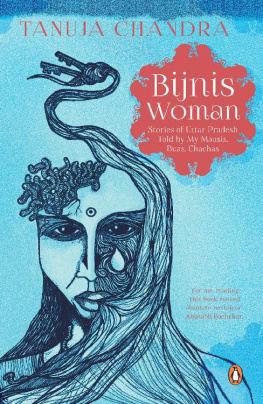


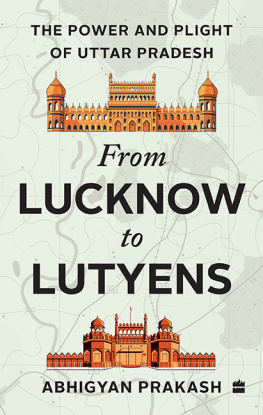
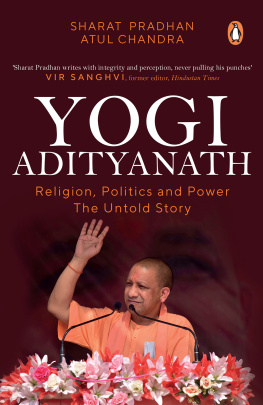
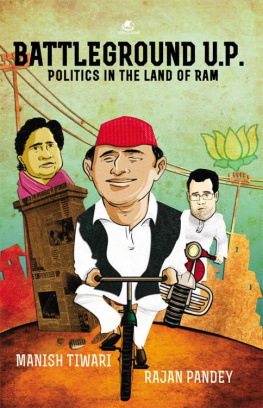

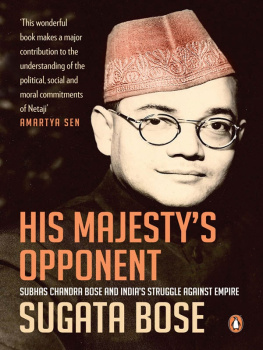
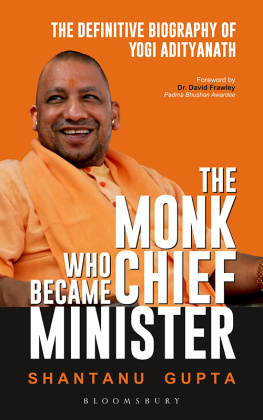
![Keith Bain - Frommers India [2010]](/uploads/posts/book/43617/thumbs/keith-bain-frommer-s-india-2010.jpg)